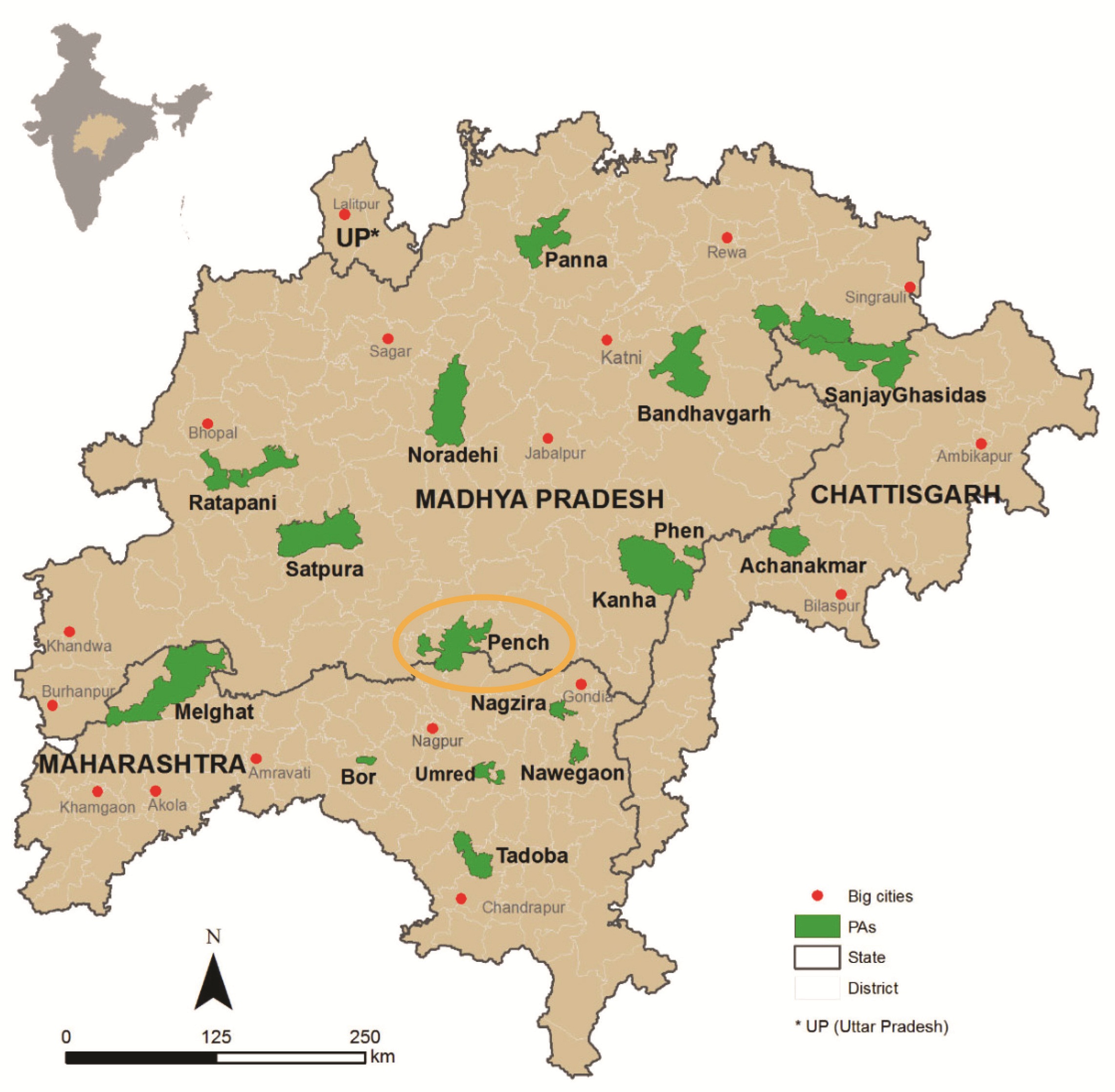Animals and Covid-19 | 07 Apr 2020
Why in News
Owing to a recent news report on a Tiger being infected with Covid-19 in New York (Bronx Zoo), the Ministry of Environment, Forest and Climate Change has issued an advisory regarding the containing and management of Covid-19 in National Parks/Sanctuaries/Tiger Reserves.
- Also, a tiger in Pench Tiger Reserve (Madhya Pradesh) has died due to respiratory illness. The National Tiger Conservation Authority (NTCA) is investigating whether the tiger should be tested for the novel coronavirus disease.
- However, swabs from the throat and nose to test for rhinotracheitis, a viral infection that afflicts cats and causes respiratory illness were collected.
Key Points
- Spread of Infection from humans to animals
- The Bronx Zoo case suggests that a zoo employee spread the virus to the tiger.
- The virus came from an animal source and mutated; humans have since been infecting humans. Thus, it is theoretically possible for the virus to mutate again to survive in certain species after being transmitted by humans.
- Advisory by the MInistry of Environment, Forest and Climate Change
- It has asked all Chief Wildlife Wardens (CWLWs) of all States/UTs to take immediate preventive measures to stop the transmission and spread of the virus from humans to animals and vice versa, in National Parks/Sanctuaries and Tiger Reserves.
- The CWLW is the statutory authority under the Wildlife (Protection) Act, 1972 who heads the Wildlife Wing of a State Forest Department and exercises complete administrative control over Protected Areas (PAs) within a state.
- Guidelines issued by the NTCA and CZA
- Both the Central Zoo Authority (CZA) and the NTCA have issued guidelines that require zoos to be on the “highest alert” and monitor animals on closed-circuit cameras 24/7 for “abnormal behaviour and symptoms.”
- The CZA has also directed zookeepers to approach sick animals wearing personal protective equipment and isolate and quarantine them.
Central Zoo Authority
- The CZA is a statutory body whose main objective is to enforce minimum standards and norms for upkeep and health care of animals in Indian zoos. It was established in 1992.
- Zoos are regulated as per the provisions of Wildlife (Protection) Act, 1972 and are guided by the National Zoo Policy, 1998.
National Tiger Conservation Authority
- NTCA is a statutory body under the Ministry of Environment, Forests and Climate Change.
- It was established in December, 2005 following the recommendations of the Tiger Task Force.
- It was constituted under enabling provisions of the Wildlife (Protection) Act, 1972, and amended in 2006, for strengthening tiger conservation, as per powers and functions assigned to it .
Pench Tiger Reserve
- Pench Tiger Reserve, Seoni (Madhya Pradesh) is one of the major Protected Areas of Satpura-Maikal ranges of the Central Highlands. It was included in the Project Tiger in 1992-93.
- It is among the sites notified as Important Bird Areas of India.
- The IBA is a programme of Birdlife International which aims to identify, monitor and protect a global network of IBAs for conservation of the world’s birds and associated diversity.
- It has a contiguous forest cover with Kanha Tiger Reserve and Pench Tiger Reserve (Maharashtra).
- The area of the Pench Tiger Reserve and the surrounding area is the real story area of Rudyard Kipling's famous "The Jungle Book".
- The forests found in Pench Tiger Reserve are divided into three parts: southern tropical wet dry forest, southern tropical dry deciduous teak forest and southern tropical dry deciduous mixed forest.
- The major Carnivores are Tiger, leopard, wild cat, wild dog, hyena, jackal, fox, wolf, weasel, among the vegetarian species, Gaur, Nilgai, Sambar, Chital, Chasinga, Chinkara, Wild Pig etc. are prominent.
- There are a lot of migratory birds seen in the cold season. Among the migratory birds, Ruddy shelduck, Pintail, Whistling Teal and Vegtel etc are prominent.

